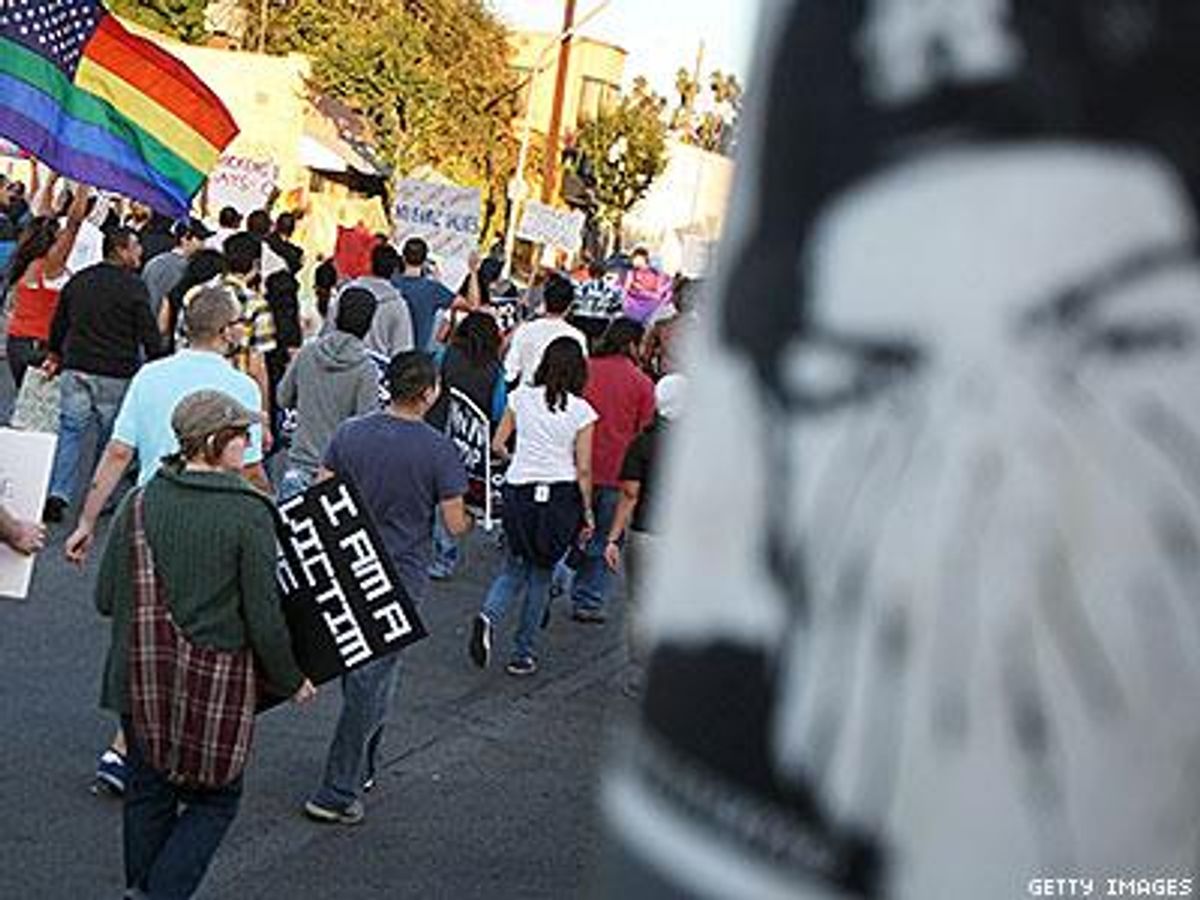If the nine justices of the Supreme Court surprise the nation and rule against marriage equality this month, legal experts predict a courthouse catastrophe for same-sex couples.
Eight writers at the Associated Press combined efforts this week to publish their own view of the LGBT doomsday scenario, which while possible, is not anticipated. Howard Wasserman, a Florida International University law professor, told them "It would be chaos."
Here's how the AP broke it down by state:
"Gay and lesbian couples could continue to marry in the 16 states that have same-sex marriage because of state court rulings, acts of the legislature or statewide votes."Similarly, the 14 states that prohibit same-sex couples from marrying, including the four directly involved in the Supreme Court cases, could continue enforcing their state marriage laws. That would include Alabama, where a federal judge has struck down the state's constitutional ban on same-sex marriage, but put her ruling on hold pending the high court's decision.
"Of the remaining 20 states, any that fought unsuccessfully to preserve marriage bans would not have much trouble resuming enforcement. "That state can immediately start saying we're going to deny marriage licenses to same-sex couples going forward," said Cornell University law professor Michael Dorf.
"That list might include Alaska, Arizona, Florida, Idaho, Indiana, Kansas, Montana, Nevada, North Carolina, Oklahoma, South Carolina, Utah, West Virginia, Wisconsin and Wyoming."
And just for perspective, USA Today reports some court clerks will face a crisis of conscience. "If they do what I hope they don't do, I'll weigh my options and look at my statutory duties as county clerk," said Boone County Clerk Kenny Brown, who opposes marriage equality.
Other clerks across Ohio and Kentucky tell the newspaper they're just as worried about the potential for chaos if marriage equality is made the law of the land.
If that happens, Campbell County, Ky., Clerk Jim Luersen -- who told USA Today he would have no problem issuing same-sex licenses -- hopes the change would not become effective immediately. A delay would give state officials time to answer questions and redesign a few forms that now allow only for "husband" and "wife" or "groom" and "bride."
But if same-sex couples show up for marriage licenses that very day, Luersen said his office would figure out how to handle it. "Worst-case scenario, we could improvise," Luersen said.
The Advocate Magazine will have complete, comprehensive and minute-by-minute coverage of the Supreme Court decision on marriage equality when it happens, as it happens.













































































